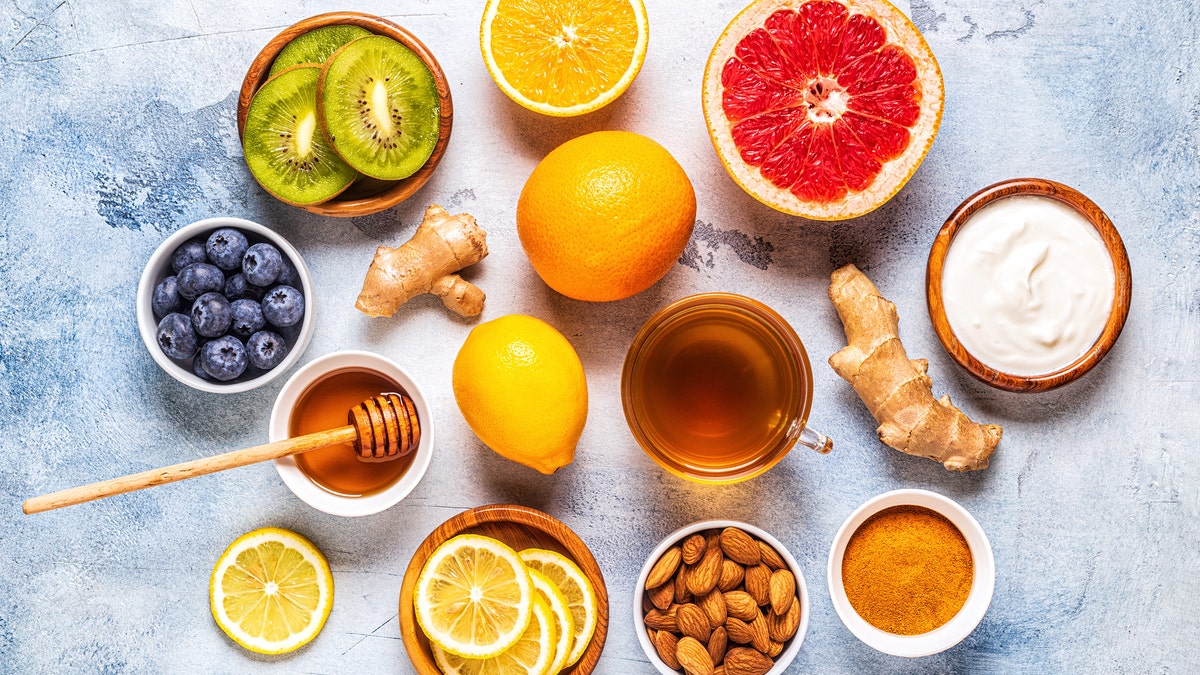Fox News Flash top headlines for September 24
Fox News Flash top headlines are here. Check out what's clicking on Foxnews.com.
This fall and coming winter, protecting yourself against the novel coronavirus in addition to the flu are imperative as the pandemic rages on.
Deaths from the virus in the U.S. surpassed 200,000 earlier this week, and dozens of states across the country are seeing a rise in COVID-19 cases. While the nation’s top infectious disease expert, Dr. Anthony Fauci, has stood by his timeline for a possible coronavirus vaccine, (he expects a “safe and effective” vaccine by the end of the year or early 2021), the pandemic is unfortunately far from over.
“We can be greatly helped by [a] vaccine, but it’s not [a] vaccine alone,” Fauci recently said.
“There really is no absolute time I can tell you now unless certain things fall into place. It’s going to depend on the efficacy of the vaccines being tested right now and the uptake in the community of the vaccines,” he added, noting that a vaccine would be in addition to safety measures such as physical distancing and mask-wearing, at least for a while.
SHOULD YOU GET A CORONAVIRUS TEST BEFORE SEEING FRIENDS AND FAMILY?

“Food is medicine, and eating fruits and vegetables is now more important than ever,” Dr. Whyte said. (iStock)
With most Americans likely still vulnerable to a coronavirus infection, experts have pleaded with the public to receive the flu vaccine this year in an effort to keep flu infections low, ultimately preventing hospital systems from becoming overwhelmed treating both flu and COVID-19 patients.
But getting vaccinated is just one (albeit major) factor in keeping yourself and loves ones healthy. So how else can you keep your immune system in tip-top shape?
“The best things you can to do keep your immune system in good shape are exercising (at least 30 minutes five days a week at moderate intensity), eating plenty of fruits and vegetables, getting a good night's sleep (eight hours, ideally), not smoking, drinking in moderation, and minimizing stress,” Dr. Michelle Lin, an emergency room doctor and professor of emergency medicine at Mount Sinai in New York City, told Fox News.
DO YOU HAVE CORONAVIRUS 'CAUTION FATIGUE'?
“We know getting enough exercise and avoiding stress has been more difficult because of COVID, but even a brisk walk outdoors or a home exercise routine can be highly effective in maintaining mental and physical fitness and supporting a healthy immune system,” she added.
Lin also spoke to the importance of hand hygiene, noting that the practice is “always a good habit, but particularly this year: wash your hands, wear a mask especially when indoors, and get a flu shot.”
“In general, there's not great evidence that supplements or vitamins outside of a varied, healthy diet do much to ‘boost’ immunity,” she said.
Dr. John Whyte, the chief medical officer of the health care website WebMD, echoed Lin.

“We know getting enough exercise and avoiding stress has been more difficult because of COVID, but even a brisk walk outdoors or a home exercise routine can be highly effective in maintaining mental and physical fitness and supporting a healthy immune system,” Dr. Lin said. (iStock)
“We do know the importance of restorative sleep and our immune systems. Getting 7-9 hours of sleep is important to help our body [stave off] infection. After all, what do we do when we have the flu? We stay in bed and sleep,” he said.
SHOULD YOU GET THE FLU SHOT? WHAT TO KNOW ABOUT THE 2020-21 FLU SEASON
“Being physically active most days of the week is of importance, too. Do some pushups, jumping jacks, [or] jogging in place,” he advised.
Whyte, like Lin, noted that he’s not a “big fan” of supplements, as “our bodies may respond differently when it is in food vs. manufactured in a lab.”
“Food is medicine, and eating fruits and vegetables is now more important than ever,” he added.
In addition to fruits and vegetables, adding healthy fats into your diet — such as olive oil, salmon, avocado, and certain nuts such as almonds, for instance — “may boost your body’s immune response to pathogens by decreasing inflammation,” according to Healthline. Eating more fermented foods or taking a probiotic supplement may also be of benefit, as is limiting your intake of added sugar. Additionally, staying hydrated is important for overall health, according to the health and wellness website.




















